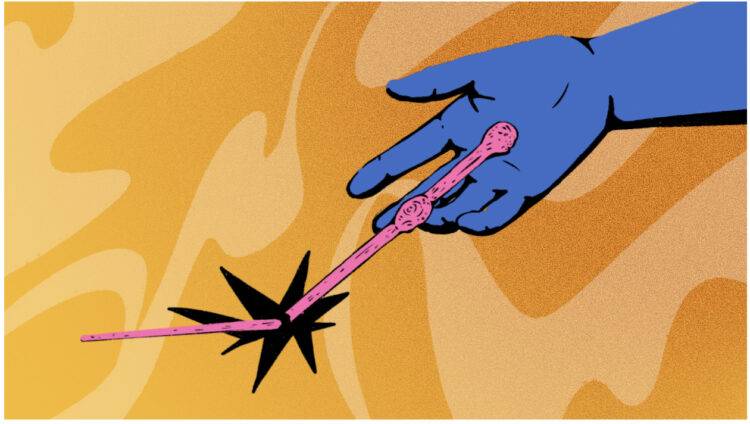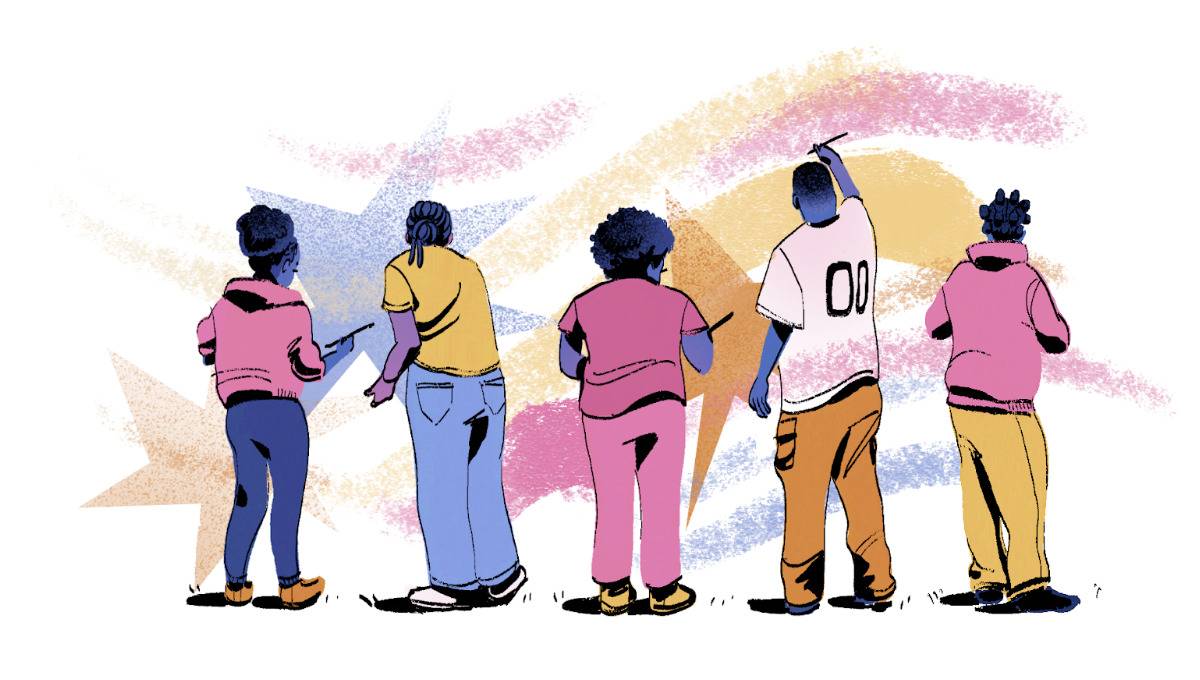
“The American Society of Magical Negroes” (2024) is a film incapable of selecting and defending a message. It muddles topics of race, gender, and romance while lacking in magic, satire, and meaningful representation. So, who was this movie made for?
The film follows young Black artist, Aren (Justice Smith) who receives an invite into the Society of Magical Negroes who dedicate their lives to maintaining white comfort. With his new abilities, the stress of his first client, and a crush on a girl he can’t have, Aren begins to question why he should continue to do something he seems to have been doing his entire life as an African American.
“The American Society of Magical Negroes” is inspired by the film and literary trope of the “magical negro.” The magical negro archetype refers to a supporting Black character who possesses supernatural abilities, often used to assist the white protagonist in their quest or journey.
Over the years, we’ve come to realize this trope as problematic. Black supporting characters in this role are subordinate to their white counterparts. While “The Magical Society” on the surface through its marketing seems fun, uplifting, and satirical, it fails to call out the trope as harmful and goes as far as to walk back on any ideas that may begin to do so.
The movie fails to follow through with its racial commentary. The discomfort that the Magical Negroes are saving white people from in the film has nothing to do with race. The Society’s orientation shows examples of their work including a society member boosting a white man’s confidence in his pool game and another society member providing various affirmations to a white man with little context. When Aren is given his first assignment, he needs to eliminate the insecurities of white corporate employee Jason (Drew Tarver).
This methodology implies all white discomfort is Black responsibility, not just discomfort based on ignorance and prejudice. As well as implying that white people take out all frustration and discomfort on Black people. It’s a reduction of the historical systems that led to the mistreatment of African Americans, and it avoids addressing any real issue to white viewers.
But the film is satire, right? It’s presenting blatant injustices amidst humor intended for well-aware Black audiences? No. This isn’t the case. The movie’s Black characters misuse comedic Black American motifs to justify the Magical Negro trope showing that characters don’t see irony in their behavior.
The romance between Aren and Lizzie (An-Li Bogan) detracts from the central message of removing white comfort from Black responsibility and adds unnecessary complexity to the plot. Even with Lizzie’s occasional awareness of workplace challenges and microaggressions, she fails to fully hold herself accountable or support Aren. This raises questions about feminism and racial allyship with Lizzie’s intersectionality as an Asian woman. The lack of a clear message undermines any possible exploration of intersectionality, while the forbidden romance perpetuates the magical negro trope. Aren’s awakening to Black and white racial dynamics is not spurred by his own disagreements but by his inability to pursue a relationship with Lizzie due to her connection to his client Jason. This leaves audiences uncertain about the authenticity of Aren’s beliefs.
The idea is stressed again when Aren brings up his new stance to Roger (David Alan Grier), his mentor throughout the film. Roger shares a poignant anecdote about his father’s compassionate response to an act of racial violence directed at him. It feels like Roger will come to the same conclusion as Aren as he describes the shame and anger he feels towards his father. Instead, Roger insists guarding the comfort of white people is the only way to survive, which is the most important thing. Even when a small part of you dies every time.
The cast’s performances are sober and sincere, Roger’s feelings aren’t ironic or funny, and he seems to be enacting a real moment of teaching and mentorship to Aren.
By the climax of the film, one hopes that the movie’s message can be saved in a fantastic monologue delivered by Aren. Aren powerfully expresses how he shouldn’t have to live in fear every day, ignoring his own needs for the comfort of white people. This moment is important, emotional, and funny. It almost makes up for the inappropriate narrative being pushed throughout the entire film, as if it was on purpose to show us how absurd The Society’s notions were. But this moment is quickly overshadowed when Aren immediately runs to Lizzie.
The film is further muddled by Aren’s firing from The Magical Society and Roger’s explanation that “as long as there are frightful white people,” there will always be a Magical Society, alluding to the institution never changing.
Nothing changes: The Society doesn’t alter their approach to better aid the Black community, Aren doesn’t gain coping mechanisms, and it appears that his hardships are cured because he got the girl. White audiences can feel absolved. There’s no problem, no lingering guilt, just a happy ending that refuses to address racism and misogyny.
Black audiences have craved genre diversity forever. The possibility of a Black Harry Potter was exciting for many. Yet throughout the movie, we see little actual magic, no spells or incantations, and no whimsical transformations. The film is painfully rooted in reality while simultaneously skirting the real facts of our society. The representation of Black characters is unrealistic and misguided.
Are we entering a new era of blaxploitation where we use Black casts to spread negative stereotypes and misinformation? If movies like “The American Society of Magical Negroes” are all Black Americans have to look to for future representation in Hollywood, entertainment, fantasy, etc. then Black Americans are in trouble.







